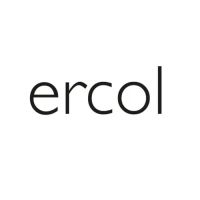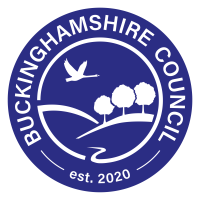- By Buckinghamshire Business First
- 28 June, 2022

Share by email
Finance experts from the Business Finance Finder discuss ways you can use funding to help continue your growth when hit by late payments.
But first, what can businesses do to ensure they are doing their bit to create a ‘prompt payment culture’?
The Prompt Payment Code
The Prompt Payment Code (PPC) is a voluntary code of practice for businesses, administered by the Office of the Small Business Commissioner (SBC) on behalf of the Department for Business, Energy and Industrial Strategy (BEIS).
The Ethos of the Code
Signatories to the code agree to:
- pay suppliers on time, within agreed terms
- give clear guidance to suppliers on terms, dispute resolution and prompt notification of late payment
- support good practice throughout their supply chain by encouraging adoption of the Code.
Buckinghamshire Business First is signed up to the Prompt Payment Code, showing a commitment to paying our suppliers promptly and encouraging other organisations to do likewise
Learn more about signing up to the Prompt Payment Code >
Finance experts from the Business Finance Finder discuss ways you can use funding to help continue your growth when hit by late payments.
What is the scale of late payments affecting UK businesses?
Article by the Business Finance Finder (Finpoint)
According to a recent Federation of Small Businesses’ (FSB) survey, one third of small businesses have been impacted by poor payment practices in recent months.
When your business's success relies heavily on guaranteed money from customers to support monthly outgoings, late payments can be the difference between a successful business or a business going under.
SMEs need to get working capital into their businesses in order to support their growth and development, but the culture of late payments in the UK is preventing SMEs from reinvesting into themselves.
What can you do to stop late payments from preventing your businesses’ growth?
- Ensure you follow the clear government-supported guidelines provided for invoicing and collecting payments.
- Build a late payment system into your cash flow forecast to help protect yourself from payment impact, which will in turn demonstrate late payment readiness to lenders.
- Consider invoice finance to help recoup the cost of lost invoices and manage your cash flow.
What is invoice finance?
Invoice finance offers a chance for businesses who are struggling to balance their books against late payments to right themselves and get back to business as usual.
Access the Business Finance Finder’s (Finpoint) invoice finance lenders and you can receive up to 95% of the value of your invoices in a matter of days.
Invoice financing can be used pre-emptively as a cash advance credit line - without the need to provide collateral or a personal guarantee – to reduce the stress of late payments and chasing invoices by having cash in hand to deal with potential cash flow problems.
Invoice finance can be used to provide growth opportunities; you can use your extra funds to expand your business, buy assets, and better your supplier relationships with faster payments.
It should be noted that invoice finance is not, and should not be used as, a replacement for businesses revenue.
In order to successfully utilise invoice finance, you need to continue to have a steady stream of sales.
Invoice financing is not a loan to plug the gap during a slow period. Be sure to keep this in mind before applying for this type of funding.
What are the different types of invoice finance?
There are three types of Invoice Finance available with the Business Finance Finder (Finpoint):
Invoice discounting
Invoice discounting allows you to retain control of your invoices and ledger. The funder advances cash for unpaid invoices, but the debt collection is conducted by you, as a business. Lenders may advance 70% - 85% of the invoice value, and release the remaining amount, deducting a small fee, once they are paid by your clients.
Invoice factoring
Invoice factoring requires you to ‘sell’ the whole of your debtor book for a predefined time period (typically between 12 or 24 months). Lenders might advance as much as 95% of the invoice value. This option also offers more anonymity than invoice financing, as the debt collection is conducted by another party.
Selective invoice finance
Selective invoice financing is the more flexible option out of the three as there is typically no contract tie-in and you can decide which invoices you want to fund.
This is a great option for businesses with a one-off requirement to remedy cashflow problems or those who don’t want to fund their full sales ledger. Fees are only applied to the invoices you choose to fund, which can make this the most cost effective option.
Small business finance made simple
The Business Finance Finder is easy to use and gives businesses access to the UK’s largest panel of business lenders with just one simple online application. We’re 100% independent - our only interest is in making sure you get the right funding option for your business needs. Start your application here >
Article by the Business Finance Finder (Finpoint)
Disclaimer: Any views and opinions expressed in this article do not necessarily reflect the views and opinions of the Buckinghamshire Business First Group. They are solely those of the author/s.
BBF provides this website platform for members to support each other. BBF cannot be held liable, including financial responsibility, for any action taken either as a result of content on this website or as a result of advice received by any member of the BBF team. The information is provided by BBF and its members in good faith. If you find any content that you find to be incorrect or inappropriate, please report this to the BBF team using the feedback form on the website.







